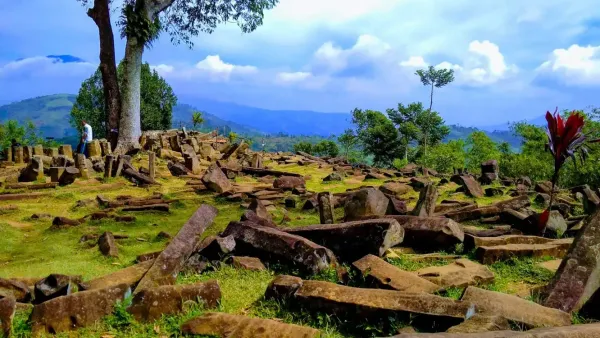Cultural Exchange and Learning in Travel Communities
Cultural exchange in travel communities enlightens, connecting diverse backgrounds and fostering mutual respect. By diving into these exchanges, travelers gain soft skills, build lasting relationships, and deepen their travel insights.

Table of Contents
Introduction
Cultural exchange in travel communities refers to the sharing of aspects of one's own culture with someone from a different background.It is an essential element of travel that fosters understanding, learning, and empathy among individuals from diverse cultures. Cultural exchange promotes understanding and tolerance by breaking down barriers and fostering empathy. It allows travelers to immerse themselves in different cultures, gain a global perspective, and appreciate the richness of human diversity.
Benefits of Cultural Exchange in Travel Communities
Cultural exchange plays a vital role in promoting understanding and tolerance among individuals from different cultural backgrounds. By sharing experiences and traditions, cultural exchange creates meaningful connections that bridge differences. In the context of volunteering tourism, cultural exchange is crucial in creating sustainable change by collaborating and exchanging ideas with locals.
Furthermore, cultural exchange helps to preserve cultural heritage and promotes cross-cultural understanding and appreciation. It provides learning opportunities for both volunteers and locals, allowing for the exchange of knowledge and skills. By prioritizing cultural exchange in voluntourism, travelers ensure that their efforts are effective, sustainable, and respectful, making a positive impact on the communities they visit.
Read Also: How Travel Bloggers Make Money: The Business Behind the Adventure
Types of Cultural Exchange Programs
There are various types of cultural exchange programs available for individuals interested in immersing themselves in different cultures. These programs cater to different interests and age groups:
- Student cultural exchange programs: These programs allow students to experience life in a different country, attend school, and engage with local students.It provides an opportunity for cultural immersion and gaining a global perspective.
- Volunteer cultural exchange programs: These programs offer opportunities to contribute to communities while experiencing their culture. Participants can engage in various volunteer activities, such as teaching, community development, or environmental conservation.
- Professional cultural exchange programs: Designed for professionals, these programs provide the chance to gain international work experience and cultural insights. Participants can enhance their skills, broaden their networks, and develop a global mindset.
- Virtual cultural exchange programs: With advancements in technology, virtual cultural exchange programs have become increasingly popular. These programs allow individuals to connect and engage with people from different cultures through online platforms. It provides an opportunity for cross-cultural learning and collaboration, regardless of physical distance.
Read Also: Unveiling the Numbers: How Much Do Travel Bloggers Really Earn in 2023?
Personal and Professional Development through Cultural Exchange Programs
Engaging in cultural exchange programs offers numerous benefits for personal and professional development. These programs help develop soft skills such as communication, adaptability, and intercultural competence. By immersing themselves in a different culture, participants gain a deeper understanding of different perspectives and ways of life.
Furthermore, cultural exchange programs provide opportunities to forge lifelong bonds and create a network of global connections. Building relationships with people from different backgrounds contributes to personal growth and a broader worldview. Being involved in cultural exchange programs also enables individuals to be a force for good in the host community by supporting local initiatives and making a positive impact.
Experiencing different cultures through these programs offers a deeper and more immersive travel experience compared to traditional tourism. Participants have the opportunity to engage with locals, learn about their customs and traditions, and develop a genuine appreciation for the host culture.
Read Also: The Ultimate Guide to Launching Your Own Travel Blog
Engaging in Cultural Exchange Beyond Programs
Cultural exchange is not limited to organized programs. There are many ways individuals can engage in cultural exchange outside of formal settings. Here are some examples:
- Learning languages: Learning a language allows individuals to connect with people from different cultures on a deeper level. It opens doors to understanding and communication.
- Cooking together: Sharing and experiencing different cuisines is a fantastic way to engage in cultural exchange. Cooking with someone from a different culture provides insights into their traditions and culinary practices.
- Experiencing music and dance: Participating in music and dance activities from different cultures can be a fun and immersive way to learn about different traditions and express oneself.
- Visiting museums: Museums offer a wealth of knowledge about different cultures. Exploring museum exhibits allows individuals to learn about the history, art, and traditions of various societies.
- Participating in language exchanges: Language exchanges provide an opportunity to learn a new language while connecting with native speakers. It enables individuals to gain insights into the culture associated with the language.
- Connecting through social media: Social media platforms offer the chance to connect with people from different cultures. Engaging in conversations, sharing experiences, and learning from one another can foster cross-cultural understanding and appreciation.
- Exploring one's own community: Even within our own communities, there are opportunities to experience different cultures. Supporting diverse businesses and communities at home contributes to experiencing different cultures and promoting inclusivity.
Read Also: The Power of a Travel Community: Expanding Horizons and Connecting Wanderers
Travel, Empathy, and Cross-Cultural Awareness
Travel has the potential to foster empathy and increase awareness of other cultures. It provides opportunities for individuals to learn about different traditions, customs, and ways of life. By experiencing firsthand the challenges and joys of different cultures, travelers can develop a deeper understanding and appreciation for diversity.
However, recent events have highlighted the need for deeper cross-cultural awareness and diversity within the travel industry itself. Although travel alone may not automatically lead to deep cross-cultural awareness, it can prompt empathetic imaginings and encounters between strangers that wouldn't happen without travel. Transformational travel requires energy, effort, commitment, and specific conditions. Immersive experiences that amplify historically marginalized voices provide better opportunities for meaningful connections and a deeper understanding of different cultures.
Learn Also: How to Find and Join Travel Communities: A Comprehensive Guide
Conclusion
Cultural exchange plays a significant role in fostering understanding and learning opportunities in travel communities. It promotes understanding, tolerance, and empathy among individuals from diverse backgrounds. Cultural exchange is crucial in volunteering tourism, creating sustainable change by collaborating with locals and preserving cultural heritage.
Engaging in cultural exchange programs provides personal and professional development opportunities, including the development of soft skills, forging lifelong connections, and a deeper travel experience. Beyond organized programs, individuals can engage in cultural exchange through various activities, such as learning languages, cooking together, and exploring different cultures in their own communities.
Travel has the potential to foster empathy and cross-cultural awareness, but it requires effort, awareness, and a commitment to inclusivity and understanding. By embracing cultural exchange, travelers can support diverse businesses and communities and contribute to a more connected and inclusive global society.




